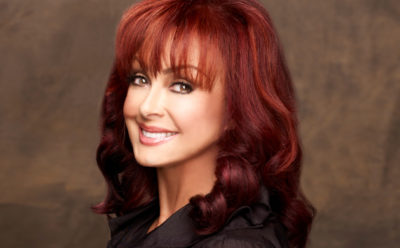
(5-3-22) On the final page of my book about my son and mental illness, I write: “Mental illness is a cruel disease. No one knows whom it might strike or why.”
I thought about these words this past weekend when I learned that Naomi Judd, the iconic country star and one-half of the mother-daughter duo The Judds, had ended her life at age 76.
Why?
She was striking, famous, talented, successful and well-loved. Perhaps the answer can be found in her own words. In 2018, she talked openly in a People magazine story about her struggles with depression .
“Nobody can understand it unless you’ve been there. Think of your very worst day of your whole life – someone passed away, you lost your job, you found out you were being betrayed, that your child had a rare disease – you can take all of those at once and put them together and that’s what depression feels like.”
The country musician had been open about her mental health issues for years. In her 2016 book, River of Time: My Descent into Depression and How I Emerged with Hope, she wrote candidly about her bouts with suicidal depression. Her book is about overcoming adversity and achieving recovery.
And yet, mental illnesses do not easily retreat.
The Tennessee state National Alliance on Mental Illness organization called her a “fierce advocate for those struggling with mental health conditions…She gave generously of her time, receiving the NAMI Tennessee Vision of Hope award in 2018 and was a speaker at the NAMI State Convention in 2019.” She lived in Tennessee.
In her comments to People, she wrote:
For everyone mourning the death of someone who committed suicide, an inevitable question arises: Why did this happen? Unfortunately, we don’t have very good answers. We do know that suicidal behavior accompanies many behavioral brain disorders such as schizophrenia, bipolar disorder, and depression. Suicide is actually one of the leading causes of preventable death among these mental illnesses.
To understand this issue better, we have to bring the study of suicide into mainstream neuroscience and treat the condition like every other brain disorder. People who commit suicide are experiencing problems with mood, impulse control and aggression, all of which involve discrete circuits in the brain that regulate these aspects of human experience, but we still don’t understand how these circuits go haywire in the brains of suicide victims.”
Such wise words and insights. Is anyone listening?
In addition to learning about her death, the local news in Northern Virginia reported this weekend that a father, who was well-known in our community, had been killed, allegedly at the hands of his 21 year-old son. A close family friend told a reporter that the son had a mental illness.
“I do know that he (the deceased) was trying desperately,” the friend was quoted saying. “He and his ex-wife were trying desperately to get him help and were facing a lot of obstacles.”
Before my son became sick, I didn’t think much about mental illnesses. Now, it seems that every time I turn on the news, I learn about yet another tragedy. Once your eyes are open, you can’t help but see.
And you can’t help but wonder. What more can we be doing to combat these cruel illnesses that claim so many lives?



